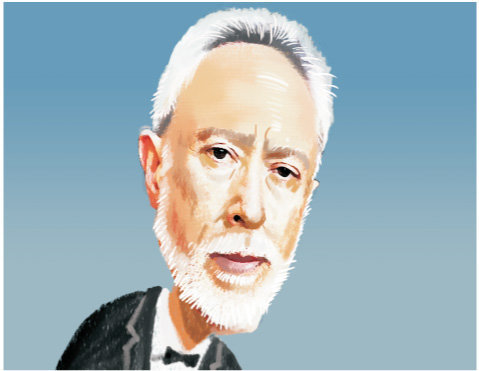Speech by Nobel Prize laureate J.M. Coetzee
Speech by Nobel Prize laureate J.M. Coetzee
Posted July. 27, 2022 07:56,
Updated July. 27, 2022 07:56

On Dec. 10, 2003, an instant hush fell over the audience of 1,200 people gathered at a hall in Stockholm, Sweden. The turnout was there to listen to the acceptance speech by J.M. Coetzee awarded with the year's Nobel Prize for Literature. The expectation was not that high, though. A couple of days before that, he replaced another acceptance speech of his by vapid reading of his short novel. He was two-time Booker Prize winner but never participated in the award ceremonies. He was known to be extremely introverted and quiet. Low anticipation was natural from the audience or viewers of the televised ceremony. However, what happened next surprised everyone watching the ceremony.
PCiting his partner Dorothy Driver who said his late mother would have been proud, Coetzee said he replied her that his mother would be 99 years old and may have developed dementia if alive, not knowing what had happened around her. He said he did agree that his mother would have been proud of him getting the award and added "for whom do we do the things that lead to Nobel Prizes if not for our mothers?" His comment meant huge as he admitted that he had been writing for his mother.
Then, he imagined a conversation between himself in childhood and his mother. "Mommy, mommy, I won a prize!" "That's wonderful my dear. Now eat your carrots before they get cold." The audience burst into a laugh at his funny imaginary conversation. When the laughter ended, he added "why must our mothers be 99 and long in the grave before we can come running home with a prize that will make up for all the trouble we have been to them." The turnout got choked up with emotions by Coetzee's comments.
It was Coetzee's version of regrets for one's unkindness to one's parents when they were alive. His mother passed away 18 years ago. His mother was not able to see his son make up for all the troubles he caused.





![취권하는 중국 로봇, ‘쇼’인 줄 알았더니 ‘데이터 스펀지’였다?[딥다이브]](https://dimg.donga.com/c/138/175/90/1/wps/NEWS/IMAGE/2026/02/20/133391101.1.png)

